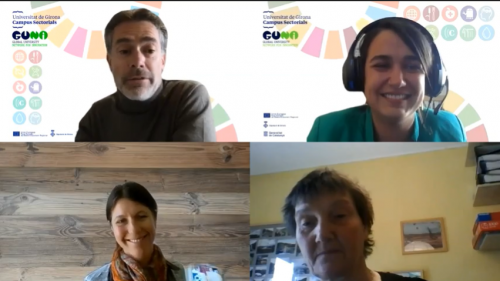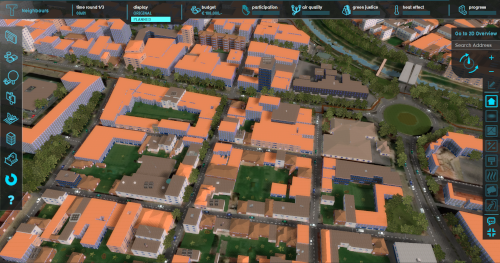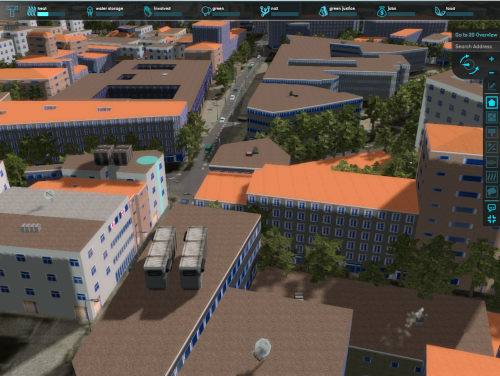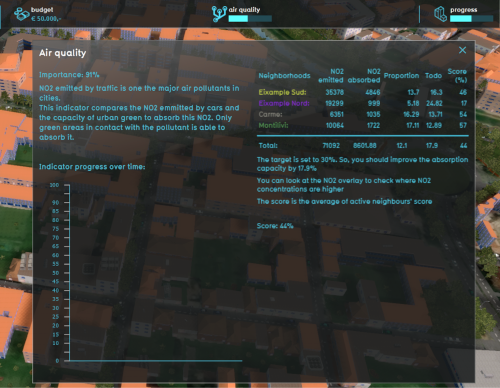The Front Runner City Berlin has two Living Labs: one in Hellersdorf and one in Neukölln.
Hellersdorf
In Hellersdorf, the Prinzessinnengarten team created a list of plants for the ECS “edible landscaping”, which fulfills the criteria of edible landscaping and focuses on indigenous, robust wild perennials that promote insects. Subsequent efforts have been made to formulate next steps and identify financial means to cover the potentially higher costs of edible plantings.
In winter 2020/21, more concrete work was done on the planning of possible products within the framework of the ECS “product development”. They concentrate on the cultivation of mint and savory and cooperate closely with the St. Jacobi / Neukölln real-life laboratory for the production of mint tea and savory syrup.
In February and March 2021, the program is planned for the 2021 season: activities, festivals and gardening days. Of course, it is important to wait and see the course of the corona pandemic.
Neukölln
The community garden of the Prinzessinnengärten at the New St. Jacobi Cemetery started in 2018. The City Team Neukölln was founded in a “kick-off event” on October 26th, 2020. First, focus topics are developed, from which edible solutions are then concretized:
- The Living Lab “as a place of active participation of the neighborhood for a lively, participatory quarter and cemetery development.”
- The Living Lab “as an environmentally friendly and low-threshold place of learning for sustainable and climate-friendly urban nature and urban agriculture.”
- The Living Lab “as a designer in a cautious change of the cemetery while promoting biological diversity and maintaining a green memorial and recreation area.” The Prinzessinnengarten is currently working on textual elaborations on the ECS
- “Product development” (together with Living Lab Hellersdorf),
- “Kiez Action Days”
- “Edible city all year round” and
- “Cemetery Conversion and Mourning Culture”.
The ECS drafts are to be coordinated with the City Team Neukölln from March 2021 and then included in the overall implementation plan for Berlin.
In addition to the two Living Labs in Hellersdorf and Neukölln, work is also being carried out in Berlin on a strategy to promote the “Edible City” for all of Berlin, the so-called “Master Plan”. The central question in Berlin is how community gardens should be designed in order to strengthen socially disadvantaged neighborhoods (neighborhood management areas).
At the last meeting, fields of action were jointly defined in which goals should / must be achieved, e.g. “Participation & Participation” and “Planning Instruments”.





